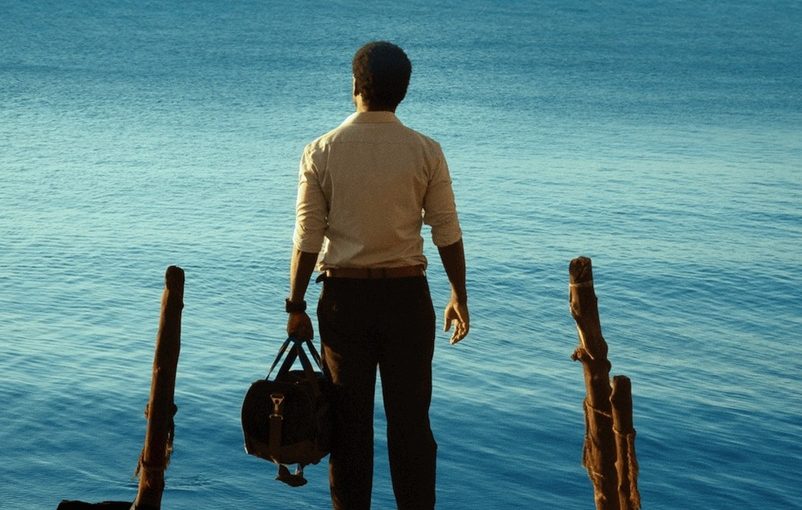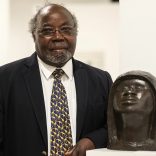Performers from Angola, Brazil and Mozambique bring poetry by Noémia de Sousa to the stage
Mozambican film premieres in theatres across Portugal

Photo: O Ancoradouro do Tempo /Facebook
A Mozambican film, a literary adaptation by director Sol de Carvalho, and two Portuguese films, by João Rosas and António-Pedro, are set to premiere in Portuguese cinemas today.
“O Ancoradouro do Tempo” [The Anchorage of Time], by Sol de Carvalho, is an adaptation of the book “A Varanda de Frangipani” [Under the Frangipani], by Mia Couto, and the premiere takes place in the week that marks the 50th anniversary of Mozambique’s independence.
Sol de Carvalho told Lusa that his goal was to convey a message of integrity, coherence and resilience, since the narrative refers to the investigation of a crime related to the trafficking of organs from albino people.
“A kidney from an albino can sell for US$50,000 [around €43,000]. In other words, albinos in this eastern region of Africa are victims of two criminal situations: on the one hand, they are victims of witch doctors and sorcerers, who use organs for rituals, and, on the other, they are victims of international trafficking, and human trafficking in Africa is a serious problem,” Sol de Carvalho related.
The film, which is a production between Portugal, Mozambique, Germany, Angola and Mauritius, was shot at the fortress of the Island of Mozambique and featured a cast exclusively of professional Mozambican actors.
“A Vida Luminosa” [Luminous Life], João Rosas’ first feature-length fiction film, is also coming to cinemas today. It follows the same character, Nicolau, from the trilogy of short films made between 2012 and 2020 (“Entrecampos”, “Maria do Mar” and “Catavento”).
Nicolau, played by actor Francisco Melo, is a young man from Lisbon taking his first steps into adulthood, divided between temporary jobs, his desire to be a musician and the hangover of a heartbreak.
“What interested me in this film was the formation of identity, when we start to follow our own path, leave our parents’ house, start working, stop being just children. The film is built around this dilemma,” João Rosas explained to Lusa.
The short films and this feature film form a tetralogy about growth and the formation of identity, and record, in chronological order, the stages of the character Nicolau’s growth, from childhood to adulthood.
“A Vida Luminosa”, produced by Midas Filmes, will be in competition in July at the Karlovy Vary festival in the Czech Republic.
“Mississipis”, António-Pedro’s documentary that premieres today, follows the creative work of choreographer Filipa Francisco in the show “A Viagem”, premiered in 2011 and involving contemporary dancers and members of folk groups.
A multidisciplinary artist, António-Pedro followed in the footsteps of choreographer Filipa Francisco for a decade in the creation of this community project as it was developed and presented in various locations around the country.
António-Pedro, co-creator and composer of the soundtrack for “A Viagem”, says that the film is the record of an encounter.
“A meeting takes place that is intensified by the need to create a professional show in a short space of time. An object that becomes the property of both groups, who create, in a rare moment of suspension, a new ‘us’,” said the director in a statement of intent.
The film features, among others, the Folklore Group of the Arganil Region, the Ethnographic Group of the Orfeão do Porto, the Folklore and Ethnographic Group of Recardães (Águeda), and the Folklore Group of Torredeita (Viseu).
“Mississipis” is a production between Terratreme Filmes and Companhia Caótica, co-founded by António-Pedro.
According to May figures from Portugal’s Institute of Cinema and Audiovisual, 23 films of Portuguese production or co-production were released this year, attracting 48,449 viewers and approximately €228,000 in box office revenue, figures that represent 1.1% and 0.8% shares of the market, respectively.












Leave a Reply
Be the First to Comment!
You must be logged in to post a comment.
You must be logged in to post a comment.